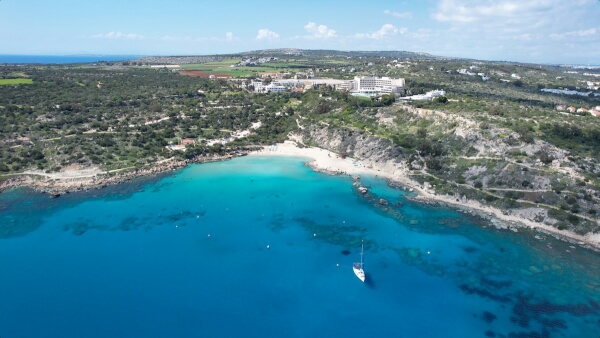Company Formation in Canada: Guide for US Entrepreneurs and Expats
Discover how U.S. entrepreneurs can navigate company formation in Canada, from costs and benefits to registration steps, tax rules, and compliance.

Turkey (Türkiye) presents a compelling alternative to the Asian market when it comes to product sourcing. Straddling Europe and Asia, the country’s strategic position and well-developed industrial clusters makes it a solid option for your business’s outsourcing needs.
In this blog post, you’ll learn:
There are many advantages of sourcing from Turkey to the US, from its strategic location to its manufacturing reputation.
Turkey offers an interesting proposition for US-based businesses looking to source products from overseas. While it can’t directly compete with Asian countries like China and Vietnam on price, the cost of sourcing from Turkey is still considerably lower than the average for Western European countries.
Plus, with a strong base of technical skills and know-how among the workforce, you could secure a deal that provides a lot of value for your investment.
Turkey also has a longstanding reputation as a hub of manufacturing, known for producing goods ranging from textiles and furniture to automotive parts.
Many Turkish factories have the benefit of leaning on age-old artisanal techniques and craftsmanship, while adding in modern automation processes to deliver a higher quality product. Many of these factories are also certified with the ISO 9001, IATF 16949, ISO 13485 and others which speaks to the quality and reliability of their output.
Turkey has a unique location compared to many sourcing countries, as it sits between Asia and Europe. As such, the country has easy, fast access to both the European and Middle Eastern markets.
There are various ports scattered throughout the country, such as major port Istanbul Ambarli, and Mersin, that are connected with the Mediterranean and Black Sea, but also Central Asia via rail networks.
Typically, sea shipments from Istanbul to the U.S. take less time on average than those coming from East Asia.
With more than 30 free zones and 5 major industrial parks, there are lots of manufacturing facilities throughout the country to handle various types of products, many of which have customs-duty exemptions.
Many of those facilities offer turnkey solutions for your product sourcing needs, so you can likely get everything you need from a single place. Since Istanbul Airport is the largest in Europe, you can rely on air shipments if that’s an option you’re considering for your business product sourcing needs.
There are various industries and products Turkey is known for sourcing. From artisanal craftsmanship to modern facilities and factories, the country has built a reputation for producing high-quality goods.
As one of the top five textile exporters in the world, Turkey is an excellent option for sourcing cotton and denim. With full vertical integration, handling textiles from start to finish in different industrial hubs, you’ll find fabric spinning in Bursa and product finishing in Izmir.
Lead times often sit within the range of 4-6 weeks, and adhere to OEKO-TEX and GOTS standards.
Turkey is also known for its home linens and technical knits, and supplies many household name brands with these types of textiles such as Zara and H&M.
Turkey has several industrial clusters, such as those in Ankara and Kocaeli, which supply a range of automotive parts and machinery following IATF 16949 protocols.
For example, you can source engine components and transmissions, but you can also find injection-molded plastics and bearings too which are useful in car manufacturing.
Wood and upholstery are popular to source from Turkey, particularly Kayseri and Inegol furnish rattan, but also solid-wood designs.
You can often get low minimum order quantities (MOQs) when ordering furniture and home goods from Turkey, sometimes as low as 50-200 units, so you don’t need to overcommit to a significant purchase.
Hand-knotted Anatolian carpets made in Konya and Usak are also highly sought-after goods from Turkey.
Turkey produces extra-virgin olive oil, apricots, and figs that conform with HACCP and BRC standards. You can also find seafood processors in Trabzon, and nuts such as pistachios from Gaziantep which export to the U.S. with short lead delivery times.
You can find manufacturers in Turkey through various sources, depending on whether you’re willing to conduct your search in the country, or online. There are limitations to relying exclusively on either online B2B marketplaces or local trade fairs and exhibitions, but both can lead to fruitful supplier relationships.
Turkey has several dedicated online B2B marketplaces you can use to quickly find a product sourcing manufacturer or supplier, and is represented in more general marketplaces too.
Here are some of the most reliable B2B marketplaces for finding Turkish manufacturers:
TurkishExporter.com - TurkishExporter is a government-run website portal which features a range of MOI-vetted exporters according to the industry or sector they operate in. With a “Live Request System”, you can easily find exporters in the country and browse the active company database to find a reliable supplier.
TradeTurkey.com - TradeTurkey.com is a top B2B marketplace which helps connect buyers to Turkish manufacturers and exporters. Companies can put in requests for certain types of goods, inviting bids and messages from suppliers and manufacturers who may be able to help.
Alibaba - Alibaba is one of the most established online B2B global trading platforms, which features a wide array of manufacturers and suppliers specializing in various goods. While it isn’t focussed on Turkish suppliers, you can filter your search to only include them, and use all the built-in features the platform has to facilitate business relationships.
Heading to Turkey to attend trade fairs and exhibitions might not be feasible if you’re based in the U.S., but if you can make the trip, or have someone go on your behalf, it can help you get a real sense of who the most reliable, go-to suppliers are across different industries.
Here are some of the best trade fairs and exhibitions for finding a product sourcing partner in Turkey:
HOMETEX - Held at the Istanbul Expo Center, HOMETEX is home to one of the largest home textiles shows anywhere around the world. At the expo you can hear from leading industry speakers, get to know world-leading textile companies, and explore various exhibitions to see if anything piques your interest.
WIN EURASIA - WIN EURASIA is an automation and machine technologies fair at the Istanbul Expo Center. Home to more than 100 different industry speakers, 700+ exhibitors, and expert-led conferences and presentations on industry trends and solutions.
Istanbul Coffee Festival - The Istanbul Coffee Festival is one of various coffee festivals in Turkey which showcases a range of specialty-coffee roasters and equipment.
IMOB - One of the largest furniture exhibitions in the world, IMOB (International Istanbul Furniture Fair) is backed by the Ministry of Trade and brings together around 600 exhibitors.
Eurasia Packaging Expo - The Eurasia Packaging Expo highlights some of the most innovative and sustainable packaging solutions across the food, beverage, and packaging industries.
Before working with a supplier or manufacturer, you’ll want to do due diligence to make sure they run a legitimate business. There are various ways you can do that, both through the internet and through in-person checks and third-party audits.
Carry out legal and tax checks - The first step to verify any Turkish manufacturer or supplier is to confirm that they’re an incorporated business via the Turkish Trade Registry Gazette, and check that they have a valid tax number.
Check for certifications - There are various certifications, such as ISO, CE, and FDA, as well as sector-specific certifications, which let you know if a company is following best practices for safety protocol and quality assurance.
Request a factory audit - If you want to be sure that everything is in order for the factory producing your goods, and that they can handle your order to your specifications and expectations, you can request an on-site audit through a third-party inspection firm.
Order a small sample - By placing a small sample order, you can get your hands on the goods before you commit to a significant number of units. Be sure to evaluate everything from the dimensions and materials used to the packaging.
As with any product sourcing, there are disadvantages of sourcing from Turkey and risks to consider when using Turkish suppliers and manufactures.
Sometimes you might run into quality control issues, especially with smaller workshops in Turkey which might not have robust QA (Quality Assurance) measures in place.
To mitigate this risk, you can request an on-site audit to assess everything from the working conditions to the QA systems and capacity. You can also carry out mid-run audits to make sure standards don’t slip after you’ve received your first order.
Since Turkey doesn’t have a U.S. FTA (Free Trade Agreement), MFN duties will be applied to any imports.
To get around the risk of non-payment, you can use Letters of Credit, Trade Assurance or platforms like PayPal or Wise. Platforms like Wise can also help you cut out hidden fees so you aren’t stung with extra costs.
The Turkish lira (TRY) has historically been a volatile currency, which means you might not always get the best deal with the exchange rate.
You can use Wise Business to get rate alerts to help get the most favorable exchange rates. This is a smart way to manage FX volatility when using overseas suppliers.
When shipping from Turkey, you need to think about what route you’re going to take. There are a few factors to bear in mind before you make that logistics decision.
For non-EU markets, such as the U.S., there are MFN tariffs placed on goods and some controlled items including chemicals, pharmaceuticals, and food require clearance from the Ministry of Trade which can take up to 4 weeks.
Choosing the best shipping method will depend on what you’re shipping, how much you’re shipping, and how quickly you need to receive the goods.
The current reciprocal tariff rate on Turkey is 15% as of July 31st, 2025. Certain product categories may be excluded or subject to alternative rules. For example, there is a 50% surcharge on steel and aluminum. As duties and import taxes are being negotiated, it's reccomended to check the current rates.
Here are some ballpark estimates of what you can expect to pay when shipping by container from Turkey:
Port of Aliaga - Port of Savannah: starting from $1,250
Izmir - Port of Los Angeles: starting from $2,650
Mersin - Port of Chicago: starting from $1,250
For air freight, you can expect to pay around $5-7 per kilogram.
Wise Business allows you to cut out hidden fees in the currency conversion process so you can increase your profit margin.
Wise is not a bank, but a Money Services Business (MSB) provider and a smart alternative to banks. The Wise Business account is designed with international business in mind, and makes it easy to send, hold, and manage business funds in 40+ currencies. You can get major currency account details for a one-off fee to receive overseas payments like a local. You can also send money to 140+ countries.
Open a Wise Business account online
| Some key benefits of Wise Business include: |
|---|
|
| Read the guide on how to open a Wise Business account |
|---|
Please see Terms of Use for your region or visit Wise Fees & Pricing for the most up-to-date pricing and fee information.
*Please see terms of use and product availability for your region or visit Wise fees and pricing for the most up to date pricing and fee information.
This publication is provided for general information purposes and does not constitute legal, tax or other professional advice from Wise Payments Limited or its subsidiaries and its affiliates, and it is not intended as a substitute for obtaining advice from a financial advisor or any other professional.
We make no representations, warranties or guarantees, whether expressed or implied, that the content in the publication is accurate, complete or up to date.

Discover how U.S. entrepreneurs can navigate company formation in Canada, from costs and benefits to registration steps, tax rules, and compliance.

Here’s your guide to company formation in Malaysia! We cover the documents you need, types of business entities to choose from, and much more.

Thinking about company formation in Cyprus? Learn how to register, what’s required, and why Cyprus is a leading destination for business setups.

A complete guide to sourcing from Vietnam, including top industries, supplier verification, and cost advantages.

This article covers why employer of record services are an important consideration for teams hiring global talent.

Explore the benefits and drawbacks of doing business in Vietnam, from costs to regulatory considerations.